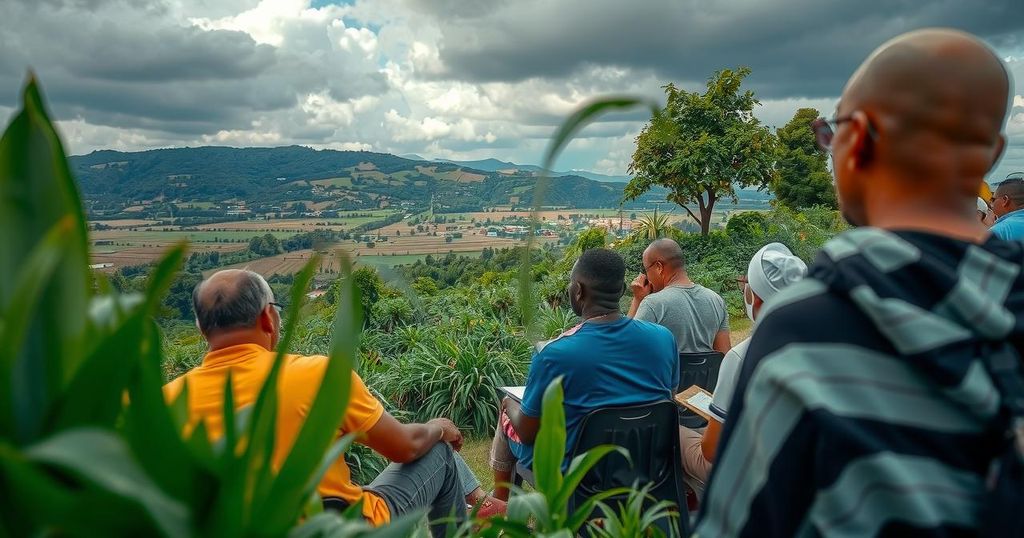Enhancing Climate Change Reporting Skills Among Kenyan Journalists

The Kenya Union of Journalists and the International Federation of Journalists held a workshop focused on enhancing climate change reporting skills among journalists. Key discussions included the media’s role in climate action, challenges faced by journalists in Africa, and the importance of accurate reporting. The workshop underscored the need for credible information, understanding community contexts, and ensuring accountability in climate finance.
A recent workshop in Kenya organized by the Kenya Union of Journalists (KUJ) and the International Federation of Journalists (IFJ) gathered 18 journalists from diverse media outlets to enhance their skills in climate change and environmental reporting. The Secretary General of KUJ, Eric Charles Oduor, emphasized the media’s role in combating climate change, stressing that journalists must accurately portray the challenges faced by communities affected by these issues. Pa Louis Thomasi, the Director of the IFJ Africa Office, acknowledged the obstacles faced by African journalists, including the lack of reliable data on climate change and the unwillingness of many governments to share such information. He noted that the inadequacies of resources within media houses hinder in-depth investigative reporting, particularly in private outlets. Furthermore, he pointed out the limited number of journalists specializing in climate change reporting, highlighting the necessity of training more individuals in this crucial area. Marvel Powerson, the lead trainer and member of the Kenya Climate Change Working Group, argued that effective climate journalism requires fact-checking and using credible information from trusted sources. She urged journalists to ensure they understand the cultural contexts of the communities they report about and to directly witness the hardships faced by these populations. In her address, she called for transparency in climate finance management and insisted that journalists must hold government bodies accountable. During the two-day workshop, participants delved into multiple topics including the media’s role in promoting climate action, vital tools and techniques for climate journalism, and the importance of case studies in effective reporting. Discussions also revolved around media freedom and the ongoing struggle for climate justice while addressing emerging challenges within the field of climate journalism.
Climate change poses an existential threat globally, but it disproportionately affects Africa, where many communities are experiencing severe impacts. Despite this reality, media reporting on climate issues in Africa has largely been inadequate. This under-reporting hampers public awareness and contributes to insufficient action being taken to mitigate climate effects. Increasing journalistic capacity is therefore critical in shaping narratives around climate adaptation and resilience in local communities. Workshops that focus on developing the skills necessary for environmental reporting are vital for equipping journalists with the knowledge and tools to cover these urgent issues accurately.
In conclusion, the workshop highlighted the urgent need for increased capacity and resources in climate change journalism among African media professionals. By enhancing skills and promoting deeper understanding of climate issues, journalists can play a pivotal role in raising public awareness and influencing policy changes that address climate challenges. Furthermore, through the effective use of factual information, indigenous knowledge, and community engagement, journalists can bridge the gap between environmental realities and public narrative, thereby fostering a more informed and proactive stance against climate change in Africa.
Original Source: www.ifj.org






